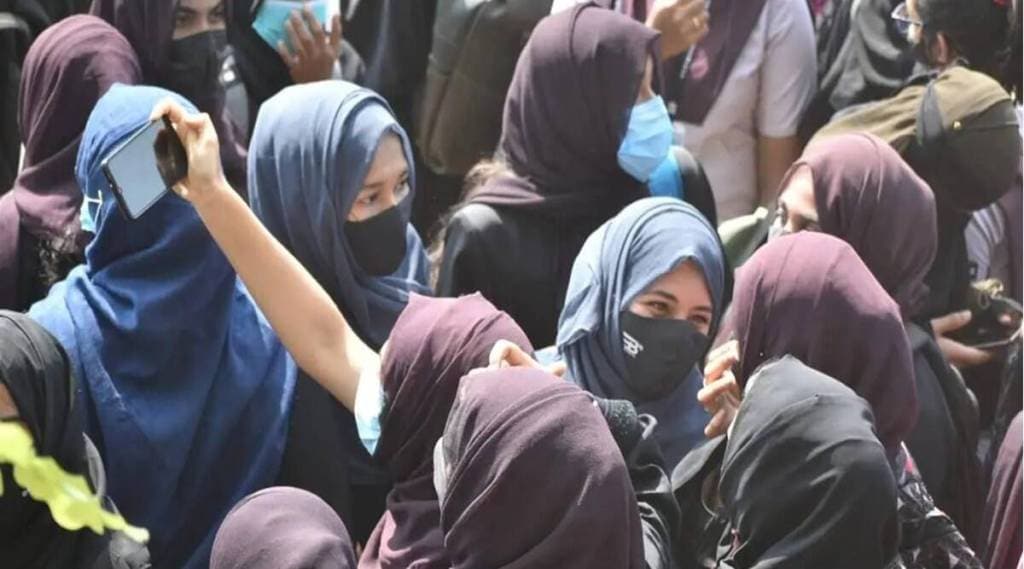Karnataka Hijab Ban, Split Verdict By Supreme Court: Hearing a batch of petitions challenging the Karnataka High Court order on banning hijab in educational institutions, the Supreme Court on Thursday passed a split verdict, reported Live Law. Following a split verdict delivered by the two-judge bench, the matter will now be placed before the Chief Justice of India (CJI) due to the “divergence of opinion,” reported The Indian Express.
Dismissing all the 26 petitions filed against the HC judgement, Justice Hemant Gupta ruled that wearing hijab did not fall under the essential religious practice of Islam, upholding the HC ban on wearing hijab in educational institutions in Karnataka. Justice Gupta, further, posed eleven questions in his order and said the decision by the Karnataka government doesn’t hinder the right to education.
Also Read | Karnataka hijab ban: Supreme Court to pronounce verdict today
On the other hand, Justice Sudhanshu Dhulia ruled that the ban placed on hijab in educational institutions was violative of key Fundamental Rights, including the ‘Right to Equality’ under Article 14 and the ‘Freedom of Expression’ under Article 19. Ordering the ban to be lifted, Justice Dhulia said, “It is a matter of choice, nothing more and nothing less,” reported Live Law.
Also Read | Can right to practice religion be taken to school having prescribed uniform, asks SC
Referring to the landmark SC judgement in the Bijoe Emmanuel case, Justice Dhulia said that the 1986 case “squarely covers the issue.” Passing the order, Justice Dhulia maintained that the HC went on the wrong track as the matter was more about preserving the Fundamental Rights of the petitioners, than that of essential religious practice.
After 10 days of hearing, the top court had reserved its verdict on the batch of petitions on September 22. On March 15, the Karnataka High Court had upheld the February 5 state government order asking all government colleges to ban the wearing of hijab inside its premises. The HC, while ruling that the headscarf did not fall under the essential religious practices of Islam, stated that the government order was not violative of Article 19(1)(a) as it had certain reasonable restrictions, which included the necessity to wear a uniform as prescribed by the college management.


